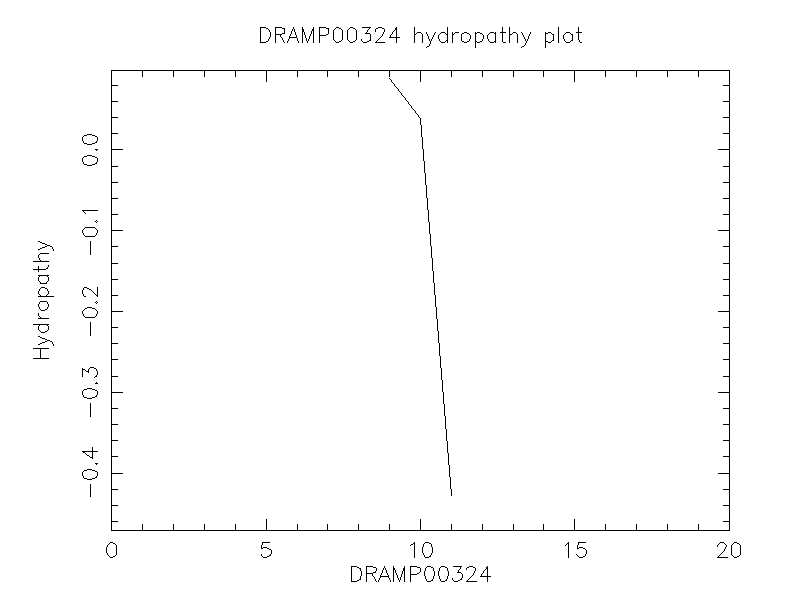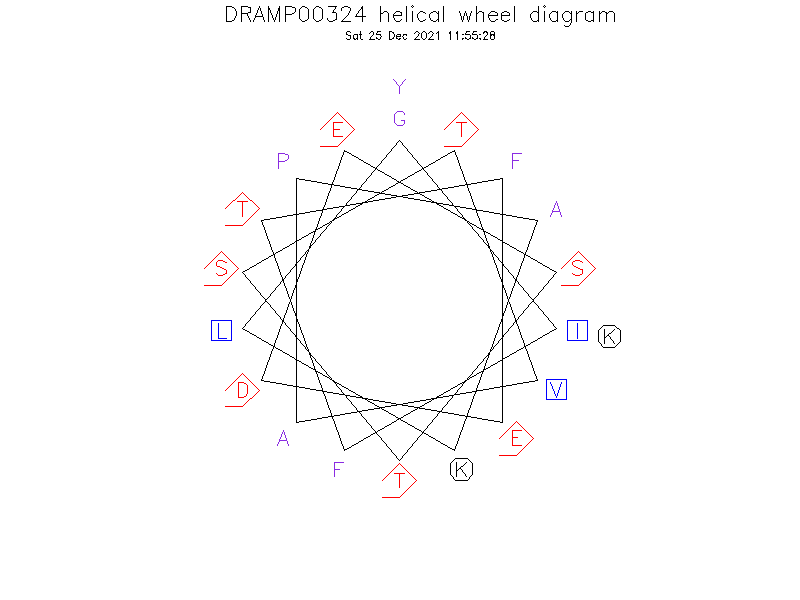General Information
-
DRAMP ID
- DRAMP00324
-
Peptide Name
- Protein PR-L1 (Plant defensin)
-
Source
- Lupinus luteus (European yellow lupin)
-
Family
- Belongs to the BetVI family
-
Gene
- Not found
-
Sequence
- GIFTFEDESTSTVAPAKLYK
-
Sequence Length
- 20
-
UniProt Entry
- P83363
-
Protein Existence
- Protein level
Activity Information
-
Biological Activity
- Antimicrobial, Antibacterial, Antifungal
-
Target Organism
- No MICs found in DRAMP database
-
Hemolytic Activity
-
- No hemolysis information or data found in the reference(s) presented in this entry
-
Cytotoxicity
-
- Not included yet
-
Binding Target
- Not found
Structure Information
-
Linear/Cyclic
- Not included yet
-
N-terminal Modification
- Not included yet
-
C-terminal Modification
- Not included yet
-
Nonterminal Modifications and Unusual Amino Acids
- Not included yet
-
Stereochemistry
- Not included yet
-
Structure
- Not found
-
Structure Description
- Not found
-
Helical Wheel Diagram
-
PDB ID
- None
-
Predicted Structure
- There is no predicted structure for DRAMP00324.
Physicochemical Information
-
Formula
- C101H154N22O33
Absent Amino Acids
- CHMNQRW
Common Amino Acids
- T
Mass
- 2204.46
PI
- 4.68
Basic Residues
- 2
Acidic Residues
- 3
Hydrophobic Residues
- 7
Net Charge
- -1
-
Boman Index
- -23.69
Hydrophobicity
- -0.18
Aliphatic Index
- 63.5
Half Life
-
- Mammalian:30 hour
- Yeast:>20 hour
- E.coli:>10 hour
Extinction Coefficient Cystines
- 1490
Absorbance 280nm
- 78.42
Polar Residues
- 7
DRAMP00324

Comments Information
Function
- Pathogenesis-related protein. May have antifungal or antibacterial activity.
Induction
- By heavy metal ions.
Literature Information
- ·Literature 1
-
Title
- Heavy metal-induced polypeptides in lupin roots are similar to pathogenesis-related proteins.
-
Pubmed ID
- PubMed ID is not availbale
-
Reference
- J. Plant Physiol. 1999;154:703-708.
-
Author
- Przymusinski R, Gwozdz E.A.

